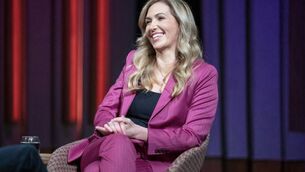National Treasure: From Star Trek to The Snapper, Colm Meaney on four decades of acting

Colm Meaney (Photo by Carlo Allegri/Getty Images)
There are worse places than the sunny climes of Majorca to find yourself in lockdown.
When the virus halted Europe in March, Colm Meaney found himself in his holiday home in the sunny Spanish island with his wife, costume designer Ines Glorian, and youngest daughter Ada. “We were very fortunate — if I had been in an apartment in New York like my eldest daughter, I would have gone nuts,” he says, speaking from Dublin, where he returned after lockdown.




